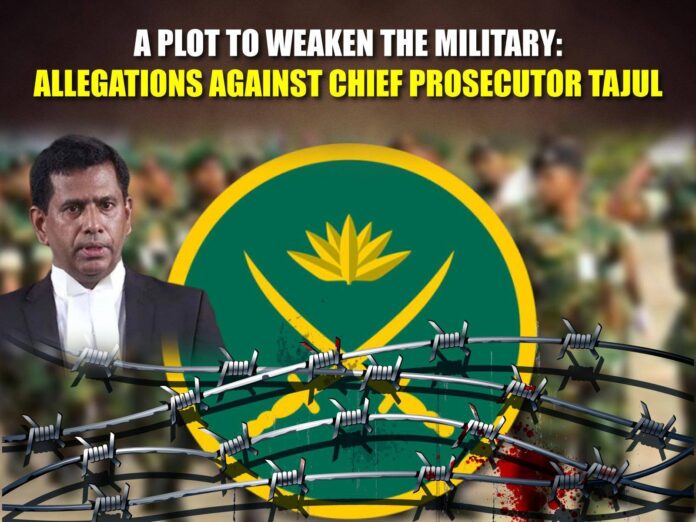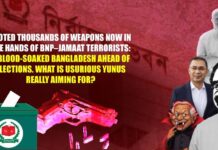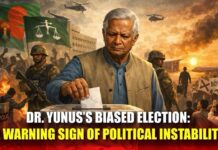In the current political landscape of Bangladesh, a grave allegation has emerged—one that raises deep concerns for national security and constitutional stability. It is being alleged that Chief Prosecutor Tajul Islam, appointed by the illegal government, is engaged in a conspiracy to tarnish the image of the armed forces and undermine their chain of command.
If these allegations are true, it would not merely be an administrative irregularity—it would amount to a direct assault on the very foundation of national security, state institutions, and sovereignty.
Sources of the allegation claim that Tajul Islam and his close associates are actively working to draw the military into the center of social and political criticism. It is reported that misleading information is being spread through various channels to damage the army’s reputation. According to these claims, the goal is to weaken one of the country’s strongest state institutions in order to maintain political control.
Even more alarming are accusations that the Yunus government is deliberately creating border tensions with Myanmar and diplomatic unease with India, thereby putting the armed forces in a difficult position. At the same time, it is being alleged that the administration is silently allowing the rise of fundamentalist groups, fostering an atmosphere of mistrust between the military and civilian sectors.
The armed forces are the ultimate pillar of a nation’s stability—they play a crucial role in maintaining internal order, border security, and sovereignty. Any attempt to attack or divide this institution for political gain poses a grave threat to the nation’s unity and constitutional structure.
History bears witness that countries where the military has fallen victim to political conspiracies have soon plunged into chaos and uncertainty. Hence, any divisive rhetoric or action against the armed forces must not be taken lightly.
In a democratic state, due process should always be open for investigation based on credible allegations. If the accusations against Tajul Islam are proven true, a neutral and transparent inquiry commission must be formed immediately. At the same time, the government and the Prosecutor’s Office should provide a clear explanation to dispel confusion and maintain public trust.
On the other hand, if the armed forces believe that their image has been damaged, they too should take appropriate legal and administrative steps to address the issue. Preserving mutual trust among the nation’s key institutions is now the need of the hour.
In the context of the current political uncertainty, any attempt to use the military as a target for political maneuvering or administrative influence is dangerous for the future of the nation.
Anyone involved in a conspiracy to weaken the armed forces must be brought under the rule of law; conversely, if these allegations are false, strict action should also be taken against those spreading misinformation.
Maintaining public confidence in the constitution, the law, and national security institutions is now the nation’s foremost responsibility.





